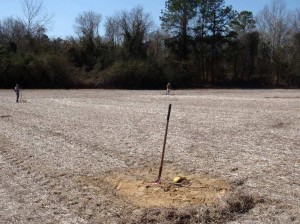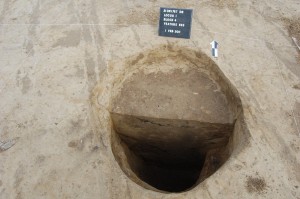Field Reconnaissance
Intuitive field examination that serves to identify portions a project area with low and high potential for the presence of intact cultural deposits.
Field reconnaissance is the lowest level of cultural resources investigation. It is comprised of a field visit to the project area and delineations of sensitive and high potential areas for cultural resources mountain recon based on an intensive walk-over. Reconnaissance data is frequently used during the planning stages of a project and to develop appropriate Scopes of Work for further investigation.
Intensive Field Survey
Comprehensive field survey of a project area.
Field survey, often referred to as a Phase I investigation, involves systematic investigation of a project area. Shovel tests are excavated at established intervals and all cultural material recovered or identified is documented. The boundaries of archeological sites identified are defined and survey in planted cedars the site deposits are evaluated for their research potential, using Department of the Interior standards. A Phase I survey will often be required by compliance and permitting agencies, and the results of this survey are often included in Environmental Impact Statements.
Site Testing
When a site is identified as being potentially significant, we conduct limited excavations to gain more in-depth information on the site to make a definitive significance recommendation.
Testing projects are often referred to as Phase II investigations. They may be comprised of a wide variety of tasks, including excavation of large shovel tests or test units. Testing may even include scraping sections of a site with a backhoe. These investigations will result in our ability testing screen in use to make recommendations on the significance of an archaeological site. If a site is recommended significant or Eligible for the National Register of Historic Places, impact mitigation options must be considered.
Data Recovery
Full scale excavation of a site, generally conducted if the site is deemed to be significant and cannot be avoided by project activities.
Data Recovery is what most people think of as a “dig.” We excavate large units, screen all soil, and collect all artifacts. Data recovery, or Phase III investigation, is conducted only if other mitigation options feature examination (such as preservation of the site) cannot be accommodated. These excavations tend to be very involved and include a variety of detailed analyses of artifacts and other material collected from the site.





